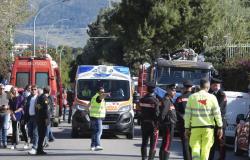The European elections are upon us. Yet, there is very little discussion about what the Union has done, what it could do or not do. To contribute to the discussion, the volume of the Inequalities Diversity Forum has been published: “Which Europe. Understanding, discussing, choosing”. Here is the introduction.
The European elections are upon us. We will vote in less than two months. Yet, there is very little discussion about what the Union has done, what it could do or not do. This is not a good sign for democratic life. To concretely contribute to the discussion, the volume of the Forum Inequalities Diversity edited by Elena Granaglia and Gloria Riva has recently been published, Which Europe. Understanding, discussing, choosing (Donzelli, 2024). Below, from the Introduction of the volume.
…We, with the Assembly of the Inequalities Diversity Forum (ForumDD), which gave the mandate to write this book, think that “the European Union has a central role in the path towards social and environmental justice for each and every one of us, for the motivations of peace and cohesion that motivated this unprecedented attempt in history, because the continental scale is in many areas indispensable to expand our substantial freedom” and for the many results achieved in these over sixty years. But the limits of the Union are evident. Not only those of the incorrect austerity policies, especially after the 2008 crisis. Even the limits that we experience every day, from hyper-regulation to the weight of interest groups, from decision-making stalemates to insufficient democracy and the debasement of public policies as a lever of justice social and environmental, to the inability to build a unitary and autonomous foreign policy. And we are aware of the many unjust inequalities between territories and between people, as well as the many poor and impoverished people who populate the Union and who cannot find an answer in the Union.
The path to take is not, however, that of indifference or opposition to the Union. The Union can be a precious resource for the destinies of the world, precisely in this phase in which its destiny is being called into question. 2024 will be a special year: 4 billion people in 76 countries will vote and we ask ourselves whether it will be the beginning of the revenge of democracy, which in recent years we have seen progressively retreat, or, on the contrary, another step towards authoritarianism. We must do our part.
While on the other side of the Atlantic Ocean Donald Trump risks returning to the White House, and even his challenger offers no guarantees of international peace, while China suddenly enters global geopolitics, while bloody wars flare up in the world and the Court International Justice, observing a “catastrophic humanitarian situation”, judges the “right of the Palestinians in Gaza to be protected from acts of genocide” as “plausible”, in this international disorder, the European Union must resume its founding mission, demonstrating that it is possible to combine peace, freedom, harmonious development, democracy, social rights and, today, also be an outpost of the ecological transition, which can no longer be optional or derogable.
From this perspective, then, the upcoming European elections are not an opportunity to reward this or that politician and even less are they a thermometer of the vitality of the Italian government. The stakes are much higher. The European Union is indispensable on the path towards social and environmental justice and in the necessary path of peace and harmonious development today at very high risk.
However, no “just any Union” is needed. We need a Union that brings to life the fundamental rights of the Charter and the Treaties; an open Union, capable of protecting competition from the expansion of dominant positions in the markets, of offering all its citizens public goods that can only be produced on that scale, of allowing everyone to participate in the improvement of conditions of life and to guarantee safety and well-being even in the face of the risks caused by the climate crisis, to carry out an action for peace and justice in the world.
Three different ideas of Europe are challenging each other today, and will continue to challenge each other after the elections: the one that has governed the last five years, which, despite making progress in the digital, environmental and autonomous investment fields, remains profoundly marked by neoliberal culture; the conservative-authoritarian one, which tries to combine neoliberalism with nationalism and corporatism, playing “social” against “environmental”, “us” against “them”; and, then, a third idea of a Europe of social and environmental justice and peace. The latter is the aspiration of the ForumDD, which we want to outline in this book.
The electoral results of Spain and Poland last year tell us that the game is open and, in any case, it is necessary to try. And therefore the ForumDD has decided to publish this book, built starting from its theses and integrated with shared external contributions, to offer citizens the basis for a public debate to be activated in the country. All of us, authors and members of the ForumDD, will begin to activate it immediately after the publication of this volume, with a trip to Italy, a tour to offer a place, a forum, in which to compare ourselves with the proposals that other organizations are building how The green book of the European Movement, discuss and, why not, challenge candidates who will ask for a vote on their electoral programme.
Attention. You will not find in this book an indication of how to vote and this is not even an entry into the electoral arena by the ForumDD, rather the volume aims to offer the citizens of Italy and Europe a lucid analysis of the state of art of the Union today and the necessary proposals that a progressive and far-sighted, serious and attentive politician/policy should propose to their voters and support during the next five years. The objective, in other words, is to offer an informative contribution to those who vote; give encouragement and motivation to those who perceive Europe as a useless or harmful entity; be a yardstick for judging, before and after the elections, programs, parties, candidacies and elected officials and have a compass to evaluate the policies that the European Union will implement in the next legislature, thus also supporting monitoring by citizen organizations active. In short, the ambition is to offer ideas and proposals capable of identifying the Union that serves the social and industrious ferment of the country, which tries every day to build a fairer future.
The volume focuses on the themes on which the ForumDD has worked most in recent years: inequalities, welfare, environmental transition, knowledge as a common good, but in this book we have made an extra effort, trying to have our say on new themes, such as governance, European institutions, migration. And we have strongly underlined the need for a Europe in which gender equity is a daily practice. On all these topics you will find concrete indications on what hasn’t worked and how the Union can make a difference, simultaneously reducing territorial divergences and economic and opportunity inequalities; promoting universal welfare and, within it, health as a European public good; accelerating an ecological transformation in the interest first and foremost of the most vulnerable; democratizing companies’ corporate governance and data management; fighting against prejudices and stereotypes that still block gender equity; fighting the rhetoric of invasion by migrants, engaging both in dignified reception paths and diversification of legal access routes, and in common policies that favor the development of the countries of origin; counteracting the processes of monopolization of knowledge that favor the proliferation of a militarized industry and the risk of war escalation.
We thus touch upon, albeit within the limits of the ForumDD’s competences, the theme of war and peace, convinced, as the ForumDD Assembly wrote, of the “inability” shown by Europe in the Ukrainian war “around the corner from home ” of “knowing how to work for peace”. An inability manifested even more seriously in the face of the “Gaza war”, when the disunity among the members of the Union meant that the compromise formula of “Isarele’s right to defend itself in line with international law” was in the face of the inhuman massacre of 7 October, no act of moral coherence and political expediency with regard to “international law” was followed, not even after the resolution of the International Court of Justice.
To go in the direction we hoped for in the volume, the task would be facilitated by a reform of the Treaties that loosens the constraint of unanimity and the creation of European parties. And the next European Parliament must also work in this direction. But the absence of this situation now should not be an excuse to give up on doing things. Much can be done with given Treaties, giving rise to even radical changes, as this book demonstrates with its many proposals. The prospect (or solution) is within reach: it is a question of returning to the path of that method of government that marked the best moments of the Union, in which strong missions and general objectives developed with a strong role of the Commission and Parliament European, is accompanied by the ability to adapt them to the needs of nations and places, always through informed spaces of democratic participation and always ready to learn and review standards and rules. By proceeding in this way, the Union can also represent a response to the widespread crisis of democracy that our societies are experiencing and a support for the South of the world.
For all these reasons, therefore, whatever you think, this book aims to be a companion for the next elections and a tool in the hands of citizens, to urge in the years that await us the Union that will be able to decisively resume the path of social justice which today can only also be environmental.






